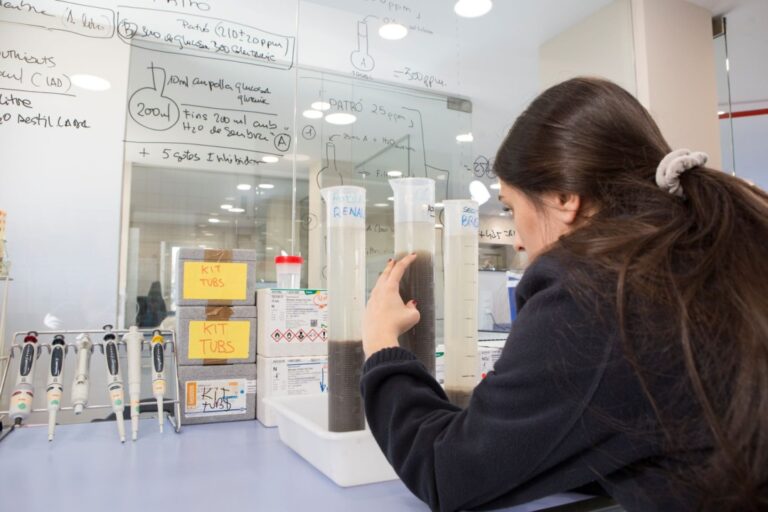
Dual vocational training constitutes a key educational model for addressing youth unemployment, since it offers a practical route with companies that allows young people to be provided with concrete skills and direct experience in the professional field. Dual vocational training is, therefore, an effective response to the gap between the supply and demand of skills in the labor market. The fact of collaborating closely with companies and the ability of VET programs to adapt to the changing needs of the industry ensure that students acquire the most relevant skills demanded by employers.
The modernization of the water sector generates quality jobs
In the water sector, this modality plays a fundamental role in the labor insertion of young people and in the preparation of highly qualified professionals. From the supply of drinking water to the treatment of wastewater for reuse, the water sector includes a wide range of activities that require qualified and specialized personnel, in a field that is also constantly evolving.
In this sense, the technological transformation that the water sector is experiencing with its digitalization, in order to address the challenges posed by the sustainable management of water resources, requires more and more qualified professionals. The automation of facilities and the introduction of specific software in water management, such as advanced technology in searching for leaks and the use of drones to monitor water quality or control the status of hydraulic works. , as well as the application of artificial intelligence, open new professional horizons for which highly qualified digital technical profiles are necessary.
Agbar, more than 10 years promoting dual FP in the sector
Since 2012, Agbar has promoted dual FP cycles in the sector through the Water School, participating directly with different public institutes in Catalonia in the design and implementation of the Medium Level Training Cycle (CFGM) in Networks and Treatment Stations. of Water and the Higher Level Training Cycle (CFGS) in Water Management. More specifically, the Pere Martell Institute of Tarragona has been a pioneer in teaching both cycles in the dual modality, with the help of Agbar and the Water School, in collaboration with the Department of Education of the Generalitat of Catalonia.
Currently, the CFGM in Water Treatment Networks and Stations is also taught at the Municipal Labor School of Granollers, at the Institute of Sustainability and Environment of Barcelona and at the Alfons Costafreda Institute of Tàrrega. On the other hand, the CFGS in Water Management is taught at the Esteve Terrades Institute in Cornellà.
The replicability of this educational model on a national scale, with a total of 18 centers spread across 7 autonomous communities, as well as the desire to provide an educational, social, business and economic benefit, make this educational commitment a successful model of public collaboration. -private with different administrations and institutions in Catalonia, since Agbar's dual FP cycles have an employability of 80%.